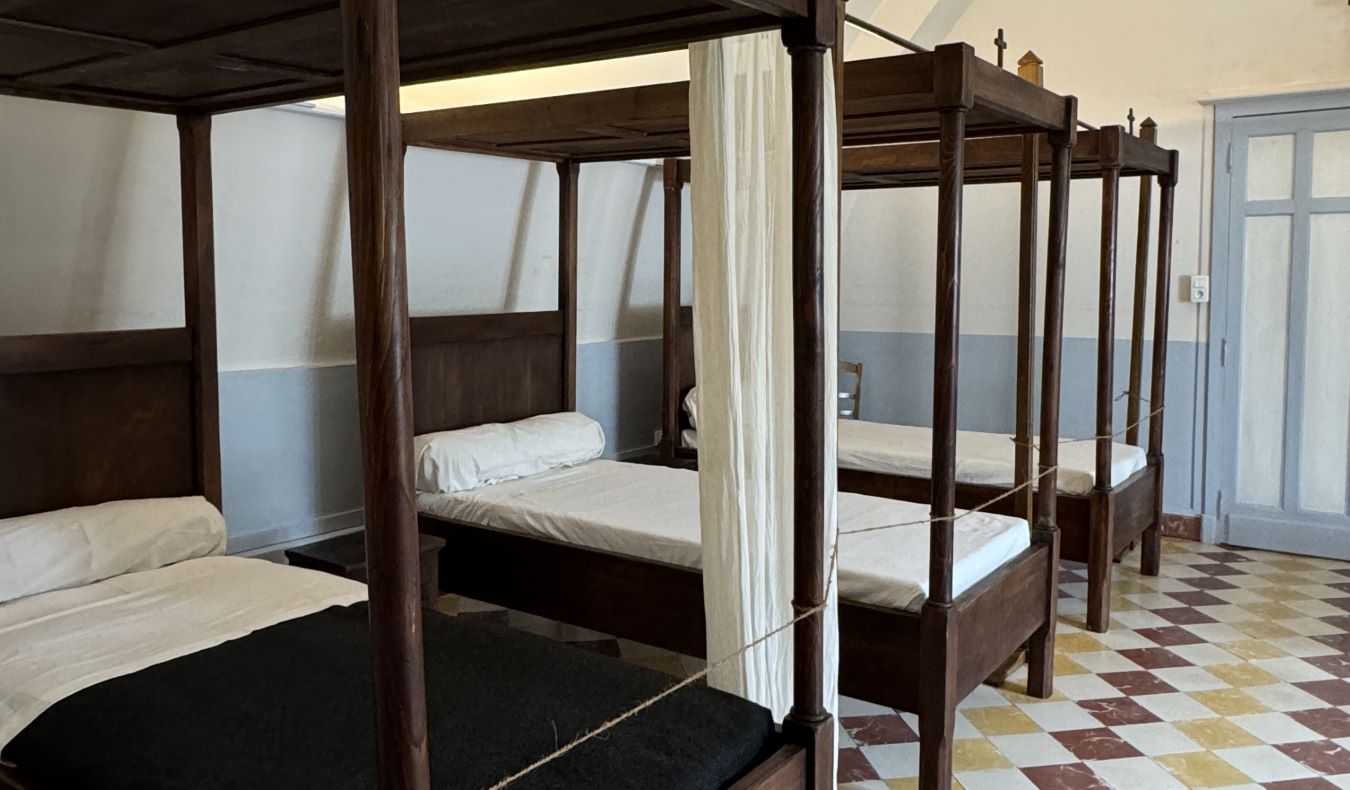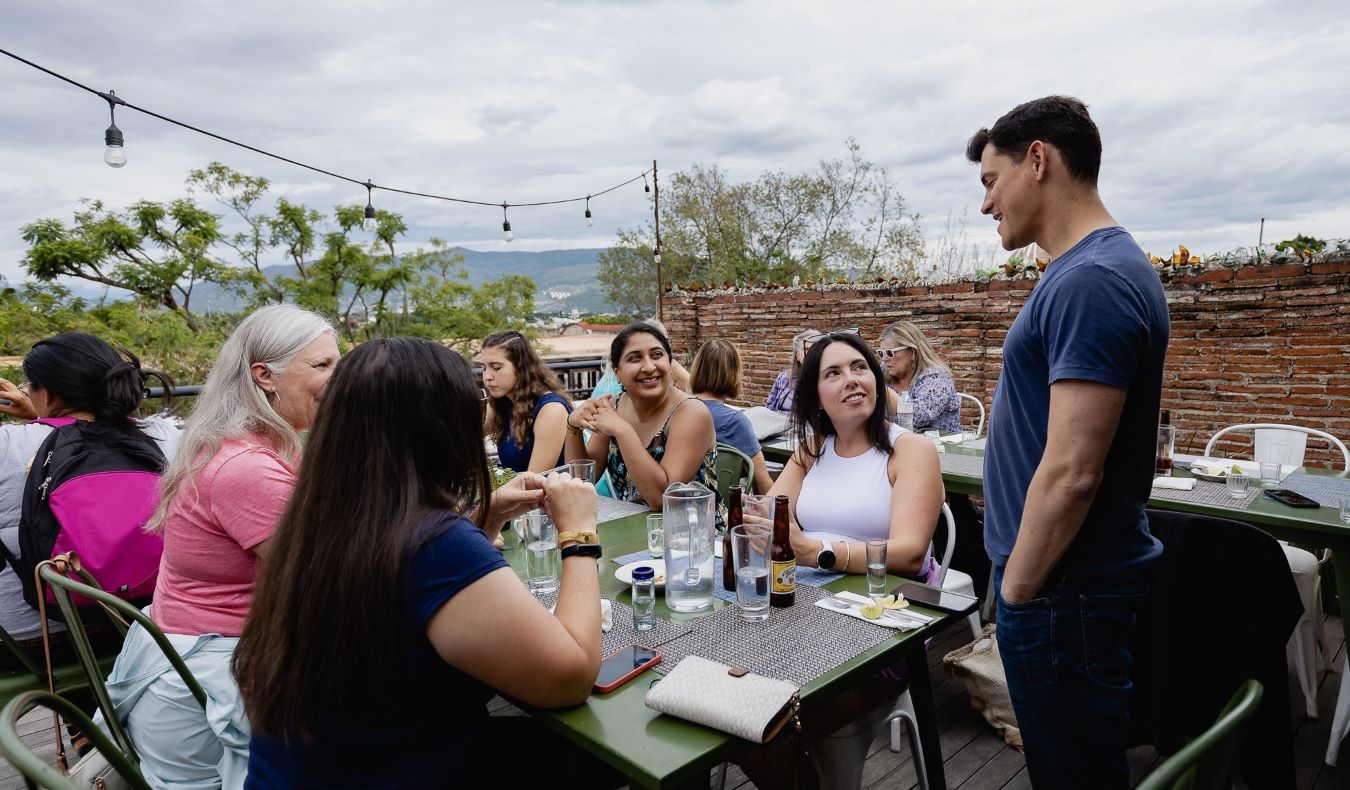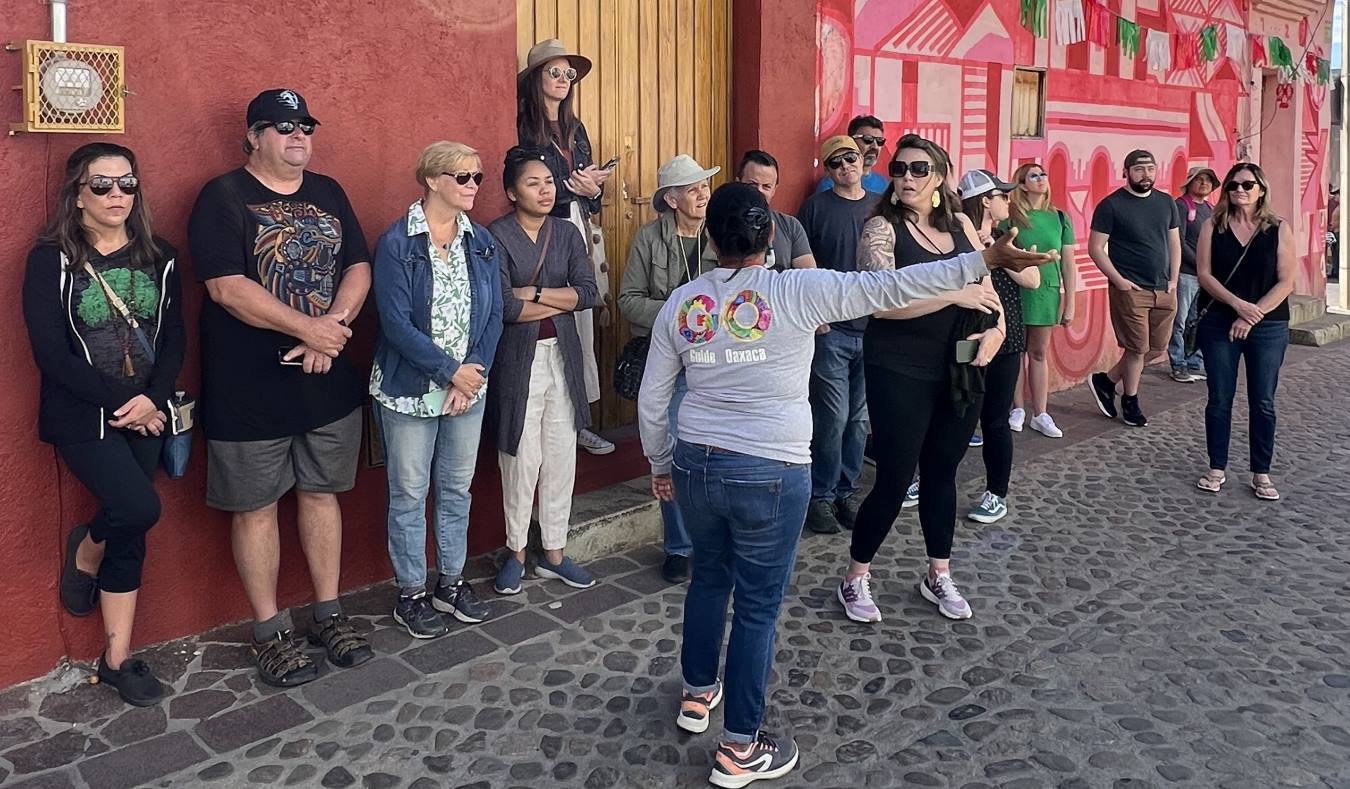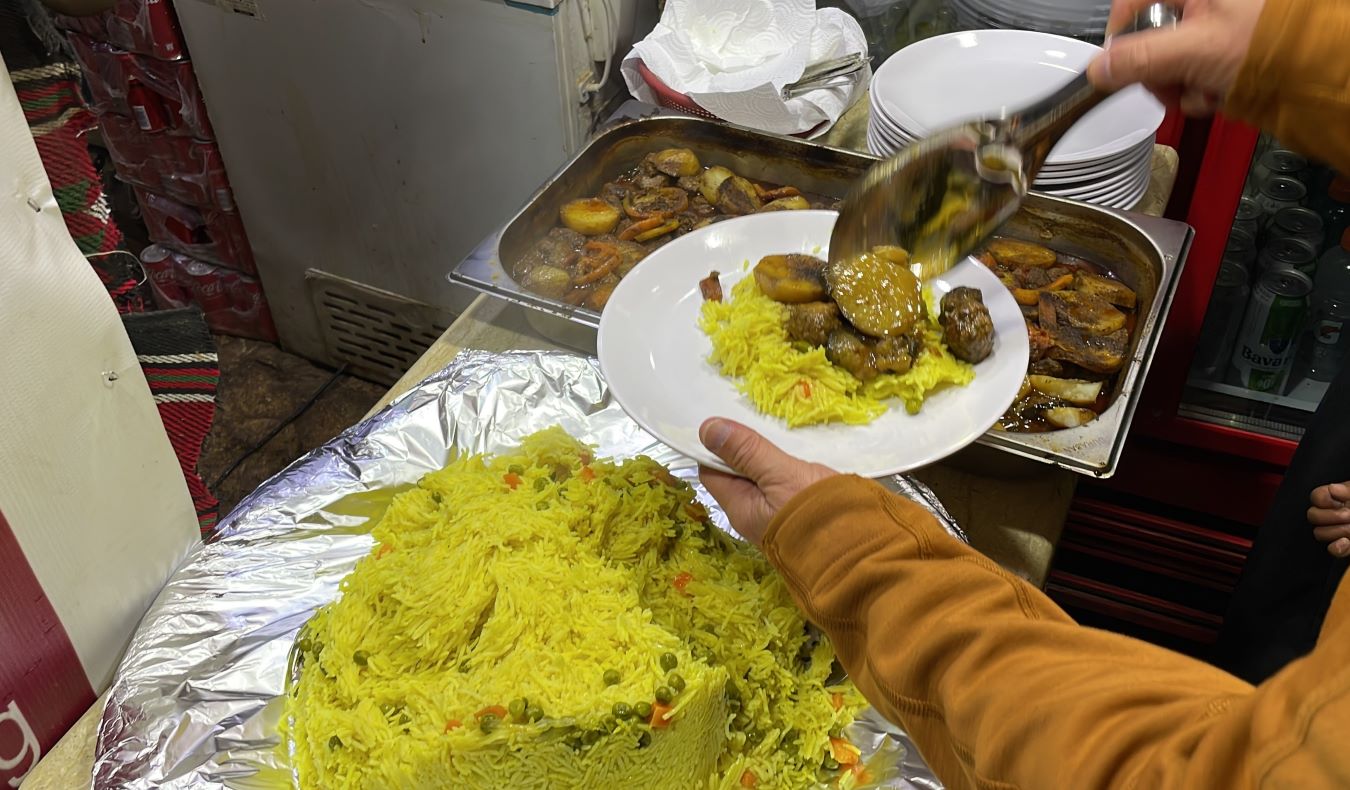
How much money do you need to save for your trip?
$1,000? $2,000? $5,000? $50,000?
For most people, the thought of saving thousands of dollars to travel the world — or just travel at all — is a daunting prospect. While there are many ways to save money and travel on an ultra-tight budget, for some, there’s no amount of spending cuts or saving tips that will help them save enough.
But, contrary to popular belief, being broke is the best reason to go travel.
However, more often than not, you’ll see articles about how people saved [insert some crazy amount here] for travel — and how you can do it too!
Personally, I always find these articles frustrating. Many of you do too. They are very unrealistic.
“I could never do that,” they say. “Sure, those people saved tens of thousands, but I can’t even afford dinner out.”
If you can’t save [insert any dollar amount you want], who cares? It doesn’t matter how much money you can. Just do the best you can with what you have. Travel with the budget you have, not the budget you wish you had. It’s not all or nothing.
If you don’t have as much money to travel as you want, consider Option B: working overseas. Leave with what you have and find work along the way to keep your wallet flush with cash — and keep you traveling.
It’s an option not enough travelers consider. Many people know about it, but few actually do it.
And it’s not as hard to do as you might imagine.
Working abroad is a unique and wonderful experience. It provides deeper insights into a country, exposes you to a new culture, and allows you to learn a new language, meet new people, and get a new perspective on the world.
I worked in Thailand and Taiwan and it was life changing. I learned more about myself during that time than I did at any other point in my travels.
Finding work overseas is an informal process. If you remember you are looking for a job rather than a career — and stay flexible — you’ll be able to find work pretty much anywhere. Whole economies and industries are built around employing travelers. (Heck, I don’t think the Australian economy would survive without the labor backpackers and travelers provide!)
Many of the jobs will be unglamorous and difficult, but they will allow you to earn enough money to keep you on the road.
Here are some examples of jobs that are easy for travelers to get and often don’t require a long commitment:
1. Teaching English (or any language!)


This is the easiest type of job to get for native English speakers. Teaching jobs are incredibly abundant around the world, especially in Southeast Asia. I saved over $10,000 USD by teaching in Thailand. I’ve had friends pay off their student loans by teaching in South Korea.
Really, when in doubt, find a teaching job. They pay well, the hours are flexible, many countries offer huge bonuses, and some schools will pay for your flight over. Just be sure to treat it seriously because this is someone’s education. Don’t phone it in and make sure you get a TEFL certificate so you understand the basics of teaching. There are a lot of online resources for potential teachers, and finding an online TEFL course has never been easier.
Some of the best TEFL courses include:
Not a native English speaker? Teach your own language. There’s a language school out there for everyone, especially in big international cities. You can also use websites like italki or Preply to teach people your native language online. You can do this from anywhere in the world and you don’t need any special accreditation. Sign in, talk, and get paid! It’s a great way to teach without being tied to one destination.
Some other companies are:
I taught in Thailand and Taiwan. Not only did I have a fantastic time being an expat, but I also learned a lot about myself and living overseas, and made enough money to keep me on the road for years. It’s an experience I’ll never forget.
2. Work in a Hostel


Hostels are often looking for staff to work the desk, clean, show guests around town, or run their pub crawls.
Moreover, these jobs can often be for as long as you want — a day, a week, a month. Hostels have a high turnover so there are often lots of opportunities available.
If you’re looking for something more temporary, many hostels will let you stay for free if you help clean the hostel each day. Even if you aren’t getting paid and are just getting free room, it’s still a way to save your travel fund.
While many hostels have signs announcing their work opportunities, most won’t. Don’t be afraid to ask about them. Additionally, if you have other skills (such as website design, photography, visual arts skills, etc.) you can also try to barter those for free accommodation.
Worldpackers is an incredible resource for finding this kind of work in hostels around the world.
3. Do Volunteer Work


While these positions don’t pay, you’ll save money on room and board which will keep you on the road longer. Plus, you’ll be doing something good for the world. Win-win!
You don’t have to spend a lot of money with large global organizations in order to volunteer either. Those companies just end up keeping a large cut for themselves for “operations.”
Worldpackers, Workaway.com and WWOOFing are some helpful resources to find volunteer opportunities.
One important thing to keep in mind is that there are many unethical operations out there that mislead volunteers in order to make a profit. Orphanages and animal tourism are particularly infamous for this. Make sure you do your due diligence to find a reputable place to spend your time, otherwise you’ll risk doing more harm than good.
For more stationary and long-term volunteering, check out Trusted Housesitters. It’s a platform that connects people in need of pet sitters with travelers looking for free accommodation. In exchange for looking after their pets, you’ll get a free place to stay. It’s a fun, easy way to find long and short-term house sitting opportunities (and who doesn’t want to spend time with cute animals!).
4. Get Seasonal Work
Move with the seasons and work in ski resorts, as a camping guide, on boats, in bars or restaurants — whatever works! Wherever there’s a big tourist season, you’ll find a big demand for temporary labor.
Make sure you get to your destination well before the season starts to secure a job — if you show up mid-season, all the high-paying jobs will be taken. Ask around at hostels in the area and they will be able to point you in the right direction!
Australia is a huge destination for seasonal work, as is Canada, New Zealand, Austria, and Norway.
5. Do Freelance Work Online


If you have a background in web services, design, programming, or anything tech related, a website like Upwork is a super way to find virtual work as you travel.
There’s a lot of competition, but if you build up your portfolio you can accrue clients over time. I have a friend who gets all her freelance consulting jobs from Upwork and it pays her enough so she can keep traveling. It’s an especially perfect option if you just want short-term contracts or part-time work since you can pick and choose what jobs you apply for.
And don’t be afraid of all the competition. As someone who has used Upwork to hire people, I can tell you it’s really hard to find competent people. If you’re even remotely good, it’s very easy to get clients. So, while it may take some time to get your first clients, once the work starts to come in, it’s easy to maintain it.
If you don’t have tech skills, you can still start a profile and find clients for a variety of research-based and virtual assistant jobs. Editing, translation, writing, tutoring, graphic design, consulting — there are tons of opportunities here if you’re willing to seek them out.
TaskRabbit and Fiverr are two other sites for finding online work as well.
6. Work on a Cruise Ship


Working on a cruise ship is an excellent way to earn money while getting a taste of the world, gaining some solid work experience, and networking with people (both fellow crew and passengers) from around the world.
Many of the low-wage jobs usually go to people from developing countries, but there are lots of other jobs available too. Cruise ships need wait staff, bartenders, tour guides, entertainers, youth counselors, and customer service staff just to name a few. Most ships have upwards of 1,000 crewmembers, which means there are ample opportunities.
This book by Wandering Earl (who worked on a cruise ship for years) is a great place to get started.
7. Get a Working Holiday Visa


Working holiday programs allow people under the age of 30-35 to legally work and travel abroad. These programs tend to be used mostly by gap-year travelers, students, or young adult backpackers.
Most of the countries that offer these programs are English-speaking Commonwealth countries such as Canada, England, New Zealand, and Australia.
The visa application process is pretty simple (though it can be expensive) and the visas are usually issued for one year. Typically, the visa comes with the stipulation that you can’t work in one place for more than six months (this is to encourage you to both work and travel).
Most of the working holiday jobs you can find are typically service or low-wage office jobs. Most people become office assistants, laborers, bartenders, farmers, or waiters. The pay is not always great, but it’s enough to live off of and usually will give you a little extra money to save for traveling.
For these jobs, you’ll need to bite the bullet, fly to these countries, and look for work when you land. While sites like Gumtree have some listings, you’ll find the majority of work when you land. Many companies specialize in placing travelers. And hostels usually have job boards and can offer a lot of assistance in finding work.
Having an up-to-date resume will help you secure an awesome position, so make sure that it’s polished before you arrive.
And while most are for people under 35, Australia is considering raising its age limit to 50!
8. Be an Au Pair


Love kids? Take care of someone else’s! You’ll get a room, food, and a weekly paycheck. You’ll have to be around a lot to watch the kids, but you’ll usually get the weekends off and some vacation time to explore the country.
These are some popular websites for finding au pair jobs:
Being an au pair won’t be for everyone and it will take some research (and interviews) to find a family that you’ll work well with. However, if you love working with kids it can be a straightforward and rewarding way to extend your travels and make some spending money. It’s an especially good choice for anyone looking for an immersive language experience as well.
9. Become a Scuba Diving Instructor


If you are a certified diver and want to become an instructor, there are dozens of huge scuba destinations around the world where you can easily find work (including Thailand, Cambodia, Honduras, the Caribbean, and Bali).
Checking the dive company’s website for openings is a good place to start, however, asking directly at their office is the best way to find out if there are any opportunities available. Also, keep in mind that cruise ships also often need dive instructors and that there are tons of dive centers in North America if you’re just getting started and looking for experience before you head abroad.
10. Leverage Your Existing Skills
Don’t underestimate your existing skills when you head overseas. If you’re a musician, teach people how to play. If you dance, offer lessons. Teach yoga, cut hair, offer business consulting, cook for people. Use whatever skills you have to find a job. Don’t be shy — be creative!
Websites like Craigslist and Gumtree are two places to advertise your abilities and find work. Where there’s a will, there is a way!
You can also use Airbnb Experiences to offer your skills/experiences there if it makes sense (you can also do this before you leave to earn more money).
If you have an in-demand skill, creating your own job is one of the easiest ways to make money. Somewhere in the destination you’re at, there is a person who wants to learn the skill you have. Teach them. Get paid. The money might not be great, but as I said at the start, you’re not looking to get rich — you’re looking to keep traveling.
And depending on your skills, you can also go virtual. Teach music or language over Zoom, create an online course, film yoga videos, and upload them to YouTube. You don’t have to work in your destination these days, so think outside the box!
11. Become a Bartender


Bars need bartenders — and every country has bars! Bars in party destinations or at hostels are the best places to start looking, as they often have a high turnover and the work can be steady.
In countries that have working holiday visas, these jobs often go to travelers. I’ve also seen bars in Southeast Asia and Europe hire travelers under the table to do work and pass out fliers. It’s not a lot of money but it’s enough to cover some meals and drinks.
If you don’t have any bartending skills, check to see if they need a dishwasher. It’s a less glamorous position, but the work is just as steady.
12. Work in a Restaurant


In that same vein, waitstaff, bussers, line cooks, and dishwashers are always in demand since people come and go from those jobs very frequently. These jobs are easy to get, especially in popular backpacking and party destinations, as well as large cities.
Again, in countries that have working holiday visas, travelers become the backbone of the service economy and jobs can often be easy to get. Additionally, if you’re in a non-English-speaking country but can speak the local language, try applying to restaurants popular with expats. Your bilingual skills will come in handy.
Don’t be afraid to apply to work in the kitchen either. You won’t have to interact with customers so you’ll need less language competency. As long as you have some experience as a line cook you can likely find a position to get your foot in the door. Cooking is a universal language!
13. Be a Tour Guide


Use your love of travel to work in travel! Tour companies are always on the lookout for new tour guides. This is more of a “real” job than the rest, but it’s a fun (though tiring) means of employment.
The pay isn’t great, but you get your expenses paid while on the tour and get to meet people from all over the world. Companies that often hire travelers are Kiwi Experience, New Europe Walking Tours, and Contiki.
These jobs usually require a longer commitment but are a good option for anyone who has permanently relocated to a new city and is looking for a steady gig while they get settled. Moreover, they’re perfect for travelers who are bilingual since tours are often operated in English as well as the local language (and often other common languages like German and Spanish).
14. Work on a Yacht


If you love the water, work on a boat (and forever be singing “I’m on a Boat” by Lonely Island). Yachting jobs are surprisingly easy to get without much experience (though having some experience will definitely help), and you’ll be able to sail around the world as you work. One of my readers did it so she could see the world.
You can find jobs on the following websites:
Note: Positions are long-term, and you’ll be required to get certified, which covers all basic yacht training, including fire and water safety training.
15. Take Whatever You Can Find
You can always trade your manual labor for pay. There are a lot of short-term jobs around the world, jobs that you can get on the fly. If you’re willing to work a few hours each day in exchange for room, board, and extra cash, you will always find something you can do.
Here are several incredible resources for finding jobs as a traveler:
16. Other Options
For those who want to work abroad but aren’t interested in any of the above, finding work is a bit harder — but not impossible. For older travelers or travelers with a skill or master’s degree, you probably want a better-paying, more traditional job relating to your skillset. You can find them, but it takes a lot more time.
In the European Union, visa rules require companies to give job preference to people within the EU before they hire someone else. In Asia, most companies want a foreigner to be able to speak the local language.
Finding “good” jobs requires more work and a lot of networking. While there are some job boards (see below) that can help, getting a more traditional job overseas requires you to either get contacted by a company or build your network and pound the pavement when you get there!
Some steps you can take to find a job overseas:
- Search job boards before you leave
- Contact expat groups before you leave (and when you arrive). Attend their meetups
- Create a LinkedIn profile
- Bring copies of your résumé, recommendations, and any other professional certificates
- Make business cards
- Go to as many networking events as possible
- Apply for jobs from local job boards
You can find these jobs, but it is not easy. I’ve had many friends who have decided to stay in cities longer and, as they built up their social network, they’ve found traditional jobs.
Resources
Here are some resources for finding jobs overseas:
- Council on International Educational Exchange Work Abroad Program – It offers students and recent graduates short-term work permits for Australia, New Zealand, France, Spain, China, Germany, Ireland, Canada, and several other destinations. The Council also offers advice and support, but it is your responsibility to find a job.
- Alliances Abroad – Guarantees paid work placement before your departure and organizes accommodations.
- BUNAC – Offers work-abroad programs in the UK, Australia, Japan, New Zealand, and Canada.
- Peace Corps – A US government program that places people around the world. Open only to US citizens. Volunteers get a stipend and money at the end of their contract. The program also helps pay off student loans.
- Go Abroad – This site also has a list of available jobs from around the world. It’s geared towards younger travelers.
Whether you are going to teach English, wait tables, bartend, sit in an office, work at a hostel, or land a high-paying job in your field, working overseas is something that will change you forever. Living in a different country is a unique experience not many people get to have.
It teaches you a lot about yourself and your perceptions of the world. At the end of the day, that is what travel is about.
Don’t let money woes get in the way of travel. If you are creative and flexible about what you want to do, you will find work.
Remember you aren’t looking for a career — you’re just looking for a job. When you are flexible in what you want to do, there will always be work available to help increase your travel funds and get you to the next destination. You can worry about a career when you come home!
Don’t worry about saving a lot of money for your trip. Just get out there, find a job, earn money, and go from there. I promise it’s much easier — and more rewarding — than you think!
Book Your Trip: Logistical Tips and Tricks
Book Your Flight
Find a cheap flight by using Skyscanner. It’s my favorite search engine because it searches websites and airlines around the globe so you always know no stone is being left unturned.
Book Your Accommodation
You can book your hostel with Hostelworld. If you want to stay somewhere other than a hostel, use Booking.com as it consistently returns the cheapest rates for guesthouses and hotels.
Don’t Forget Travel Insurance
Travel insurance will protect you against illness, injury, theft, and cancellations. It’s comprehensive protection in case anything goes wrong. I never go on a trip without it as I’ve had to use it many times in the past. My favorite companies that offer the best service and value are:
Want to Travel for Free?
Travel credit cards allow you to earn points that can be redeemed for free flights and accommodation — all without any extra spending. Check out my guide to picking the right card and my current favorites to get started and see the latest best deals.
Need Help Finding Activities for Your Trip?
Get Your Guide is a huge online marketplace where you can find cool walking tours, fun excursions, skip-the-line tickets, private guides, and more.
Ready to Book Your Trip?
Check out my resource page for the best companies to use when you travel. I list all the ones I use when I travel. They are the best in class and you can’t go wrong using them on your trip.













